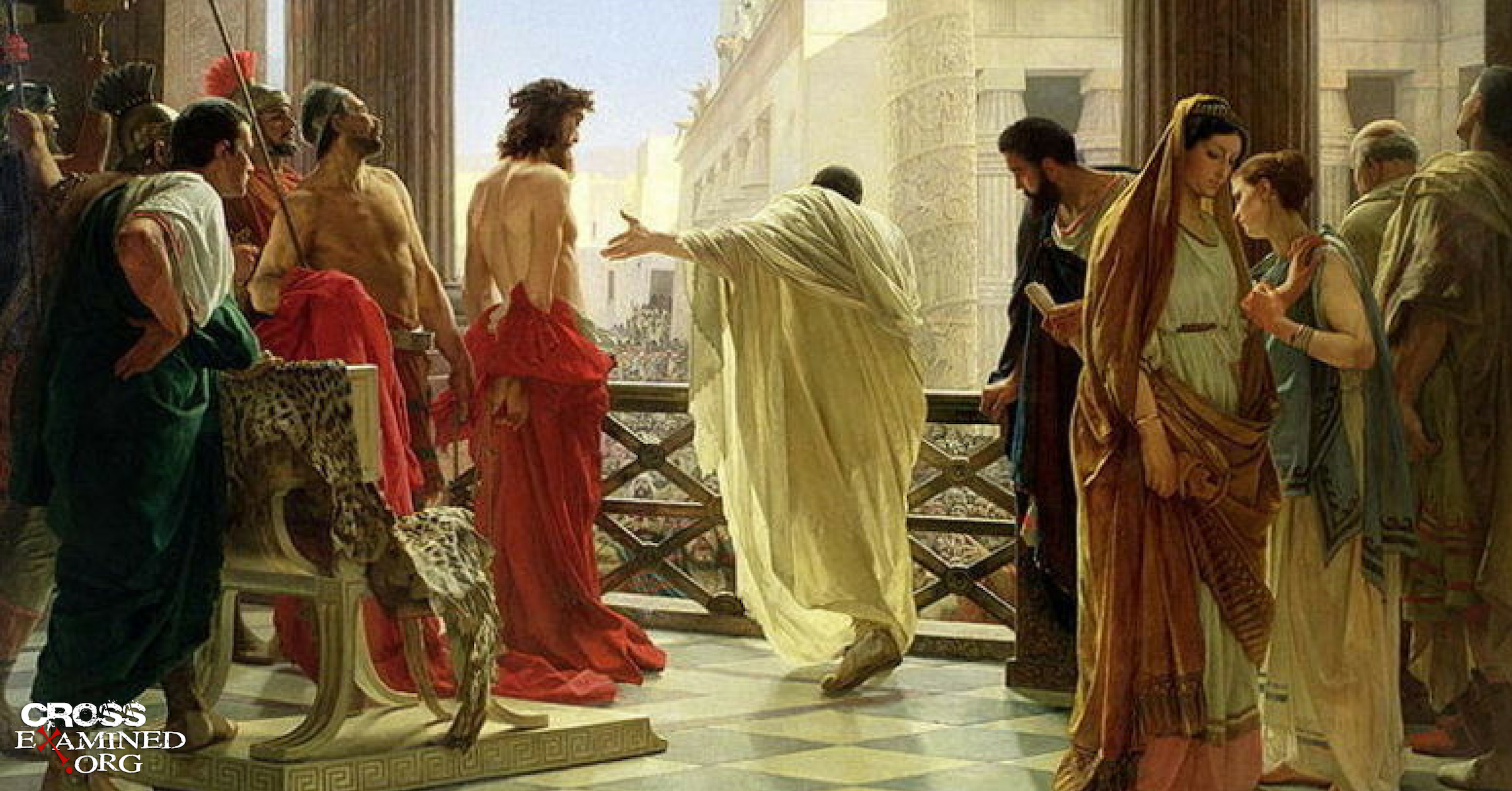Why Should We Trust the Extra-Biblical References to Jesus?
We received a great question on our Instagram page this week:
“How do we know that the extra-biblical sources which mention Jesus are trustworthy? Josephus, Tacitus, and the rest weren’t eyewitnesses; they never knew Jesus.”
The questioner here is referring to ancient historical accounts – especially written by the historians Flavius Josephus and Cornelius Tacitus – which mention Jesus and give us some information about him. Josephus describes Jesus as the brother of James in his work Antiquities of the Jews and also provides the most well-known extra-biblical reference to Jesus. Tacitus makes reference to Jesus’ death under Pontius Pilate in his work Annals.
As the questioner stated, Josephus and Tacitus both were not eyewitnesses to the events of Jesus’ life. Josephus was born a few years after the events of Jesus’ life and was mostly involved in Jewish political matters (and not in the early Christian church). Tacitus also lived after Jesus – a few decades later – and focused on the politics and history of Rome (an area not heavily reached by the Christian church at the time).
Since these two historians were not eyewitnesses, how can we know to trust their references to Jesus? There are a few things we need to consider when answering this question:
-
Ancient accounts of historical events were often written by people who lived after the events happened
In other words, they were not eyewitnesses of the events. Still, in these cases, we can still learn basic facts about the events which took place. For example, the earliest source we have about the events of Alexander the Great was written by a historian who lived around 300 years after the life of Alexander. Even with this time gap, we can consider many facts about Alexander to be reliable and true.
-
Almost all ancient historical accounts were written within a culture focused on oral tradition
This focus means the details of the events were transmitted verbally within a community that could check the facts of the events with each other. This method of transmitting information becomes powerful when multiple people witness an event, as all the eyewitnesses can work together to reach a reliable account of the events that took place.
This oral focus gives us a primary reason why the writing of historical events tended to happen later – there was little need to immediately preserve events through writing when people were used to preserving events orally within their community. It also explains how a written account written years after a historical event can still be reliable – a reasonably accurate oral tradition could have already solidified by the time the events were written down.
-
The works of Josephus and Tacitus are generally reliable.
Tacitus is praised by historians for being a reliable source on the history of ancient Rome. Josephus’ reliability has been called into question because of his tendency to exaggerate and because of a strong bias towards Jews. However, he has provided us with valuable information about historical figures like Herod the Great, and information about the inner workings of Jewish ritual and culture. Overall, Josephus is reliable in providing basic historical facts about the lives of Jews.
Once we establish the general reliability of these authors, we can turn to the reliability of specific historical accounts they wrote, and specific passages within those accounts.
-
There is no reason to question Tacitus’ reference to Jesus being killed under Pontius Pilate.
The language used in passage 15.44 – saying that Jesus suffered the extreme penalty under Pontius Pilate, is consistent with other works of Tacitus. There is nothing out of the ordinary noted in this passage which would make us think the text was tampered with. And we even have archaeological evidence for the existence of Pilate – through an inscription found 50 years ago, and a ring found this year.
-
We can find basic facts about Jesus in the works of Josephus.
The references to Jesus in Josephus’ Antiquities get a bit more complicated. There is one reference to Jesus as the brother of James, which appears in every copy we have of the Antiquities. The reference doesn’t seem to be out of the ordinary in terms of the flow and style of the writings of Josephus. It is reasonable to consider this passage reliable.
However, in the most well-known reference to Jesus called the Flavius Testimonium, there is some commentary we would not expect Josephus to make based on his other writings and based on the fact he is a Jew. For example, one copy of the Antiquities includes the comment that Jesus was “the Christ,” which would be highly unlikely for him to say (after all, that would make him more of a Christian than a Jew!).
The inclusion of this commentary makes us question the details given in the passage, and brings up the possibility of an error in copying the passage or an intentional change in the passage by readers who lived after Josephus. That doesn’t mean we need to throw out the entire passage – it just means certain details are in question. When we eliminate the questionable details, we can still pull basic facts about Jesus in the passage, such as he was someone who did “marvelous works.”
-
These references are not the only sources we have on Jesus.
Let’s say we do throw the references in Tacitus and Josephus out. We still have the letters of Paul, the synoptic gospels, the writings of early Church fathers, and a few other extra-biblical references that provide some information on Jesus. Even the Gnostic gospels from the 2nd Century point us to some very basic facts about Jesus (such as his existence!)
The references in Tacitus and Josephus give us a greater sense of confidence in Jesus’ existence, and some key facts about his life – especially his ability to do things that people considered to be miraculous or at least “wonderous.” The references also point us to his death, an event that most Muslims and some skeptics deny. And through other extra-biblical sources, we can see that early followers revered Jesus highly and elevated him to the status of God.
Again, I didn’t intend for this post to provide the definitive answer for the reliability of extra-biblical references to Jesus. But these six considerations will definitely give you something to think about. No matter how we view the references to Jesus in Josephus and Tacitus, one thing is for sure – we have a wealth of evidence supporting the existence of Jesus and the basic claims that Christians make about his life.
Jeremy is the co-founder of the ministry Twin Cities Apologetics and is an accountant for a law firm in Minneapolis, Minnesota. He’s also going to Bethel Seminary for a graduate degree in a program called Christian Thought (basically Apologetics!). Outside of Apologetics, Jeremy enjoys sports, playing guitar, and making videos.
Original Blog Source: http://bit.ly/2FZeFc9












Leave a Reply
Want to join the discussion?Feel free to contribute!